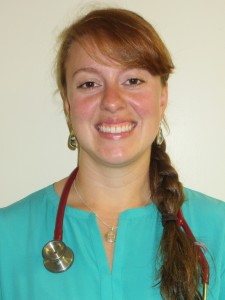 By Devon Lucier, AGNP, Grace Cottage Family Health
By Devon Lucier, AGNP, Grace Cottage Family Health
as appeared in the Brattleboro Reformer’s Graceful Health series, February 26, 2016
If you have ever known anyone with shingles, you will understand why the national Centers for Disease Control and Prevention (CDC) recommend that eligible adults become vaccinated.
Shingles is a very painful rash caused by the same virus that causes chicken pox. Anyone who has had chicken pox (and rarely, those who had the chicken pox vaccine, which includes a weakened strain of the virus) can develop shingles. For reasons not yet understood, the chickenpox virus reactivates and causes shingles. It may have to do with one’s immune system, and the tendency increases with age.
While anyone who has ever had chicken pox can get shingles, even on rare occasions children, most cases occur in people age 50 and older. According to the CDC, almost one third of Americans will develop shingles during their lifetime. Every year, there are approximately one million cases reported.
Therefore, the CDC recommends that people 60 years of age and older get the shingles vaccine to prevent both shingles and post-herpetic neuralgia (PHN). Shingles is the rash, and PHN is the nerve pain often associated with shingles, a pain that can linger for days, weeks, months, or even years after the rash disappears. This pain can be severe and debilitating. The older you are, the more likely you are to develop PHN, and its severity also tends to increase with age.
The most recent case of shingles that I saw started with pain and increased sensitivity, and then a fairly severe rash. The patient was a man in his 70s, and he did not have the shingles vaccine. If he had had the immunization, his symptoms would most likely have been less severe.
Shingles (also known as herpes zoster) generally starts with painful itching or tingling for several days before the rash appears. The rash can last for several weeks to a month, usually progressing to blisters and then scabs before it is gone. It may be accompanied by an upset stomach and flu-like symptoms, and for some people, it affects the eyes.
The virus that causes shingles can spread by contact until the lesions dry and crust over. In this case, it is those who have never had chickenpox or the chickenpox vaccine who are susceptible. Therefore, it is very important that a person with shingles keep the rash covered so as to avoid contact with anyone who has not had chicken pox. When the disease is spread this way, it will occur as chickenpox, not shingles.
In addition to age, there are other factors that increase one’s risk of developing shingles. Those with a compromised or weakened immune system and those who take immunosuppressive drugs, such as steroids and drugs given after organ transplantation, are more likely to get shingles. Most people have just one bout of the disease, but it sometimes recurs.
The shingles vaccine, also known as the herpes zoster vaccine, has been approved by the FDA for adults age 50 and older, but it is not yet recommended for those age 50-59 because the effect of the vaccine may decrease over time, and the tendency to contract the disease increases with age. The vaccine has been shown to reduce the risk of shingles by 51% and the risk of post-herpetic neuralgia by 67%. Those who do get the disease after being vaccinated tend to have milder cases.
It is important to talk with your medical provider about the pros and cons of having the shingles vaccine. Most often, the worst side effects are mild redness, soreness, or itchiness. On rare occasions, people have serious allergic reactions. Your provider is the best person to advise you about your particular risks.
The shingles vaccine is given in an easy, single-dose shot. For the vast majority of the older adult population, it is an excellent preventive strategy.
Bio: Devan Lucier graduated from the University of Vermont with a Bachelor of Science in Nursing and a Master of Science in Nursing. She is an Adult Gerontology Nurse Practitioner.
